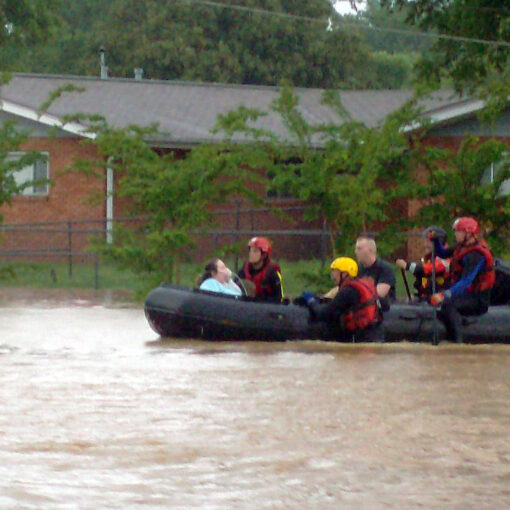Homeowners insurance policies are designed to provide peace of mind by protecting against unexpected events, such as theft, fire, or storm damage. However, one common exclusion in these policies is flooding. Floods are considered a gradual event and can cause widespread and unpredictable damage, making them a significant risk for insurance companies. In this blog post, we will explore why floods are typically excluded from homeowners insurance policies and what homeowners can do to protect themselves.
Why Are Floods Excluded From Homeowners Insurance Policies?
The primary reason flood damage is excluded from homeowners insurance policies is that it is considered a high-risk event. Unlike other types of damage, floods can be unpredictable and can cause extensive damage to homes and properties. Flooding can also occur in areas that are not typically prone to flooding, making it challenging for insurance companies to estimate the potential risk accurately.
Another reason is that flood damage can be costly for insurance companies to cover. The cost of repairing homes and replacing damaged belongings can add up quickly, making it difficult for insurance companies to provide affordable coverage. As a result, most insurance companies exclude flood damage from their standard policies, leaving homeowners to seek additional coverage.
What Is Flood Insurance?
Flood insurance is a separate policy that homeowners can purchase to protect their homes and belongings from flood damage. The National Flood Insurance Program (NFIP) is a government-backed program that provides flood insurance to homeowners in high-risk flood zones. The NFIP offers coverage for up to $250,000.00 for your building and $100,000.00 for personal belongings.
In addition to the NFIP, homeowners can also purchase private flood insurance policies from insurance companies. These policies may offer higher coverage limits or additional coverage options, such as coverage for living expenses during the repair and recovery process.
What Should Homeowners Do To Protect Themselves From Flood Damage?
Homeowners should take steps to protect themselves from flood damage, even if they do not live in a high-risk flood zone. Here are some steps that homeowners can take to protect themselves:
- Understand Your Policy Limitations: Homeowners should review their insurance policy to understand what is covered and what is not covered. If flood damage is not covered under their policy, they should consider purchasing a separate flood insurance policy.
- Document Your Belongings: Homeowners should take an inventory of their belongings and keep a record of their value. This can help streamline the claims process if their belongings are damaged or destroyed in a flood.
- Prepare Your Home: Homeowners should take steps to prepare their home for a flood, such as installing flood barriers, elevating utilities, and sealing basement walls.
- Seek Public Adjuster Assistance: If a homeowner experiences flood damage and their insurance company denies their claim, they may need to seek assistance from AAA Public Adjusters. A public adjuster from AAA Public Adjuster can help homeowners understand their rights and options for pursuing compensation.
Conclusion
Flood damage is a significant risk for homeowners, and it is important to understand why it is excluded from homeowners insurance policies. By purchasing flood insurance, homeowners can protect their homes and belongings from flood damage. Homeowners should also take steps to prepare their homes for a flood and document their belongings to streamline the claims process. In the event of a flood, homeowners may need to seek legal assistance to ensure they receive the compensation they are entitled to.
Our highly trained, licensed public adjusters will guide you through the process of preparing and filing an insurance claim in a professional manner. Similar to hiring an attorney if you needed to go to court, or hire a certified public accountant to file your tax return, you should only file an insurance claim with your own professional insurance and construction expert that can be found at aaapublicadjusters.com.
Let aaapublicadjusters.com get you the maximum return on your insurance claim! See how we can help.
To start a new claim, call 1.800.410.5054 today for a free inspection and policy examination from our Public Adjusters.




